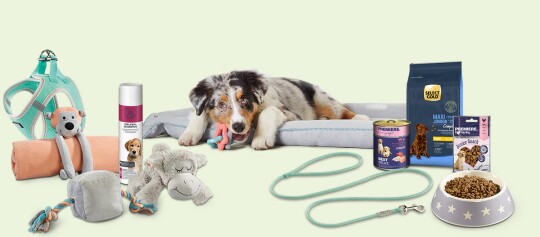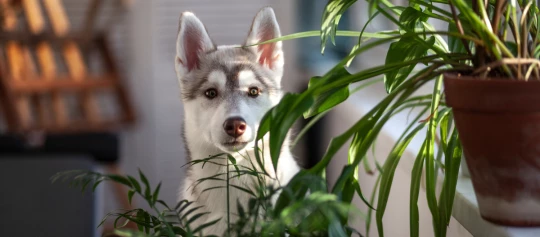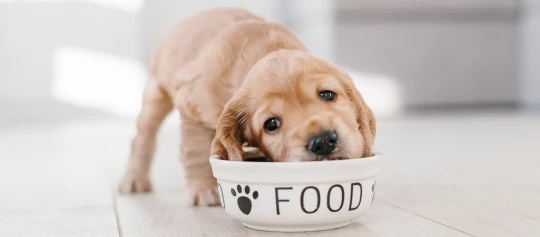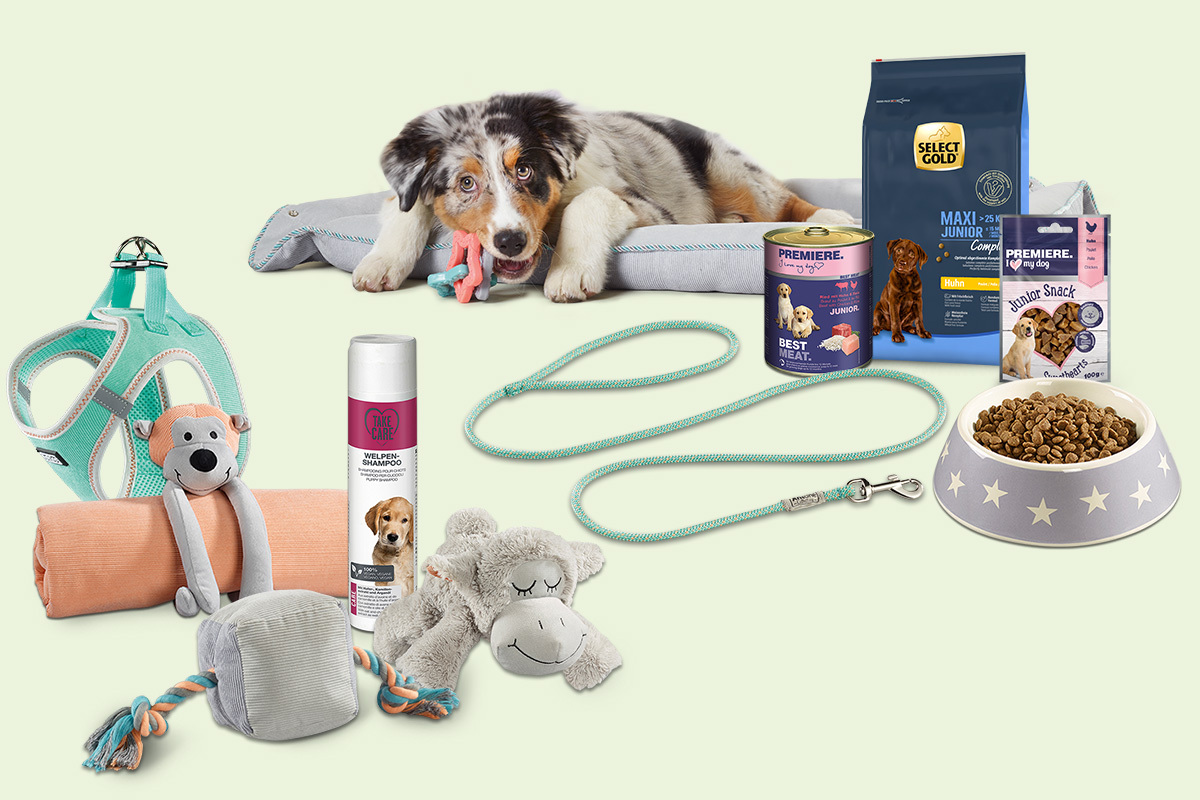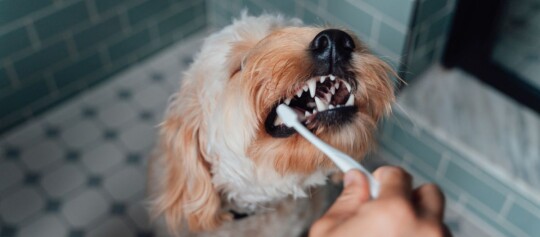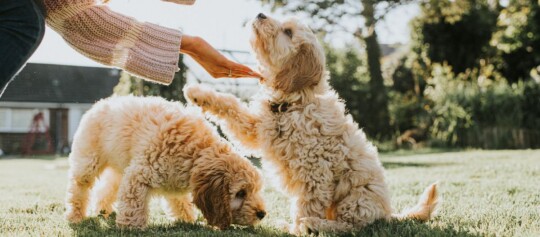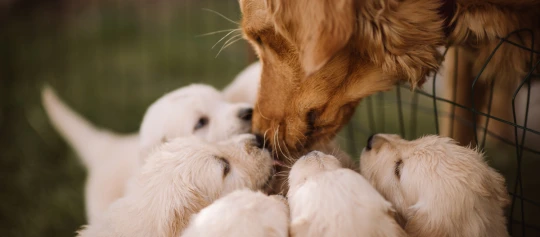Hurray, your puppy is here!
First steps with your puppy
Your little puppy should feel comfortable and be able to grow up healthily in its new home from the outset. We can support you with basic information and handy tips in relation to the equipment you will need to start you off, nutrition and training so that you can have the best possible start to your life together.

Basic equipment: Everything your puppy needs
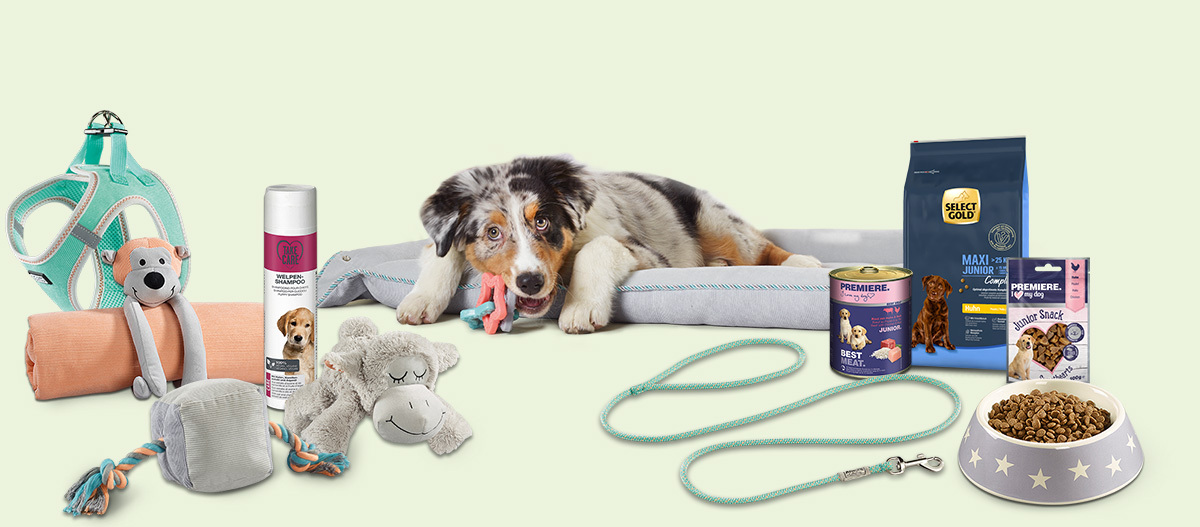
Your puppy needs:
- Food: Puppies need special food which provides them with the correct nutrients to enable them to develop healthily. > Puppy food
- Harness and lead: A suitable, adjustable harness and a lead are important for safety and to enable you to control your puppy. > Harnesses and leashes
- Food and drinking bowls: A food and drinking bowl made from ceramics or stainless steel offers stability and is less susceptible to bacteria. > Bowls for puppies
- Dog bed or cushion: The place where your dog sleeps should have removable covers and be big enough to allow your puppy to stretch out. > Sleeping places for puppies
- Toys: Puppies need toys which are not only safe and hard-wearing but which are also appropriate for promoting their mental and physical development. > Puppy toys
- Brush or comb: Puppies need a brush which has very soft bristles and which is suitable for their fur type. > Puppy brushes
- Shampoo and care products: Make sure that the products are specially formulated for puppies and do not contain any harsh substances. > Care products for puppies
- Pet carrier: Ensure that the carrier is big enough to allow your puppy to stand up inside it, turn around and lie down comfortably. > Pet carriers
Guide to puppy equipment
How to puppy-proof your home

A little puppy is curious and is not yet able to judge what is dangerous. It is important that you take a few precautions before your puppy moves in so that your new pet can move around freely and untroubled in its new home.
Puppy-proof home
- Put away poisonous substances: Move cleaning products, medicines, chocolate and poisonous houseplants in places where your puppy is not able to reach them.
- Remove safety hazards: Remove sharp or fragile objects and electrical wires which your puppy could nibble on or knock over.
- Secure bins: Ensure that your puppy does not choke on or get injured by its contents.
- Block stairs and doors: Use baby gates or other barriers to block off stairs and rooms which you don’t want your puppy to enter.
- Protect furniture: Use protective devices to prevent your puppy from nibbling on or scratching furniture.
- Check windows: Make sure that windows are properly closed and secured so that your puppy is not able to fall out or run away.
The right nutrition for your puppy

Which food is best for your puppy depends on its origin, possible pre-existing conditions, its expected growth, its appetite and the feeding options available. Above all, it is important that the food covers all the necessary nutrients, is well tolerated and is eaten with pleasure.
Puppy food: What’s important
- It contains all of the important nutrients and minerals for development.
- High-quality proteins, fats and carbohydrates are present in balanced quantities.
- The food is free from artificial colourings, flavourings and preservatives and does not contain any unnecessary fillers.
- It is highly digestible and accepted by your puppy.
